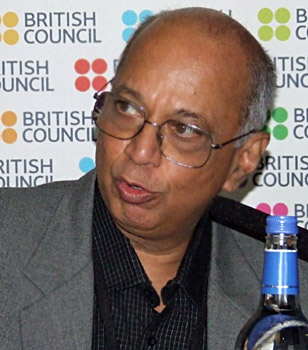 Drama in Marathi Literature is a rather rich literary field. There were a number of talented playwrights who contributed immensely to the field of Marathi literature. Among them, the most outstanding was Vijay Tendulkar. In his works he has experimented a lot with form and style and taken inspiration from the Western dramatic models and works. His works portrayed a number of contemporary human issues. His plays have gained immense popularity and even been translated and staged into a number of regional languages.
Drama in Marathi Literature is a rather rich literary field. There were a number of talented playwrights who contributed immensely to the field of Marathi literature. Among them, the most outstanding was Vijay Tendulkar. In his works he has experimented a lot with form and style and taken inspiration from the Western dramatic models and works. His works portrayed a number of contemporary human issues. His plays have gained immense popularity and even been translated and staged into a number of regional languages.
Another well-known dramatist during the time was Anil Barve (1948-84). He was a political activist in the Naxalite movement in Andhra Pradesh and other parts of India. He came into prominence by means of his various journalistic reports. His first novel, `Thank You, Mr. Glad` (1975), is a story of an encounter between Virbhushan Patnaik, a Naxalite prisoner, and Mr. Glad, the British superintendent of the jail. The conversion of the autocratic jailer, who shoots his ward at his request and takes his place in the cell, is riveting. The play was adapted in 1977 with great success. His other novels, `Dongar,` `Akara Koti Gallon Panee` (1978), etc deal with tensions between an aging communist and a retired army officer and between a corrupt mine owner and a decent engineer, respectively. His play `Hamidabaichi Kothi` (1979) is a tale of a prostitute, Hamidabai, whose kothi (brothel) has fallen on lean days. The play captures the suffering of the woman and her attempts to escape the brothel life. Barve goes beyond the passing emotional and subjective elements and focuses on the social origins of the tragedy. Barve is acknowledged for having brought realism with all the starkness back to the Marathi novel and drama.
The new generation of playwrights is represented by Mahesh Elkunchwar (1939) and Satish Alekar (1949). Like Tendulkar, they followed the path away from the professional Marathi theatre. Elkunchwar`s plays have drawn social criticism throughout his career. He has taken up topics which go against the moral values and orthodox social norms of the middle-class. His plays have been translated into English and Hindi. His plays have been published since 1970 and his plays have been staged by prominent producers. His first play, `Sultan`, was followed by `Garbo` (1973), `Rudravarsha` (1974), `Vasanakand` (1975), `Yatanaghar` (1977), `Party` (1981), and `Wada Chirebandi` (1987). In his attempts to explore the interaction between human relationships and the morality that supposedly holds society together, he projects the conflicted outcome. His one-act plays, starting with Sultan, brought new intensity to the genre in Marathi. He has been acknowledged for bringing to light the practices that society does not want its members to discuss or practice and thus pushing the limits of social discourse.
Another Marathi playwright, Satish Alekar, has focused primarily with experimental theatre. His plays `Micky ant Memsaheb` and `Mahanirvan` (1974) established him as a promising young playwright. His other plays include `Mahapur` (1977), `Begum Barve` (1979), and `Shaniwar, Raviwar` (1982). His Mahanirvan is a satire of the practices and morality of the urban, lower-middle-class Brahmins. The death of a tenement dweller provides a platform to launch his black comedy, which alternates between a farce and tragedy.
Thus drama in Marathi literature has benefited immensely from the works of the above discussed playwrights and their works.



















